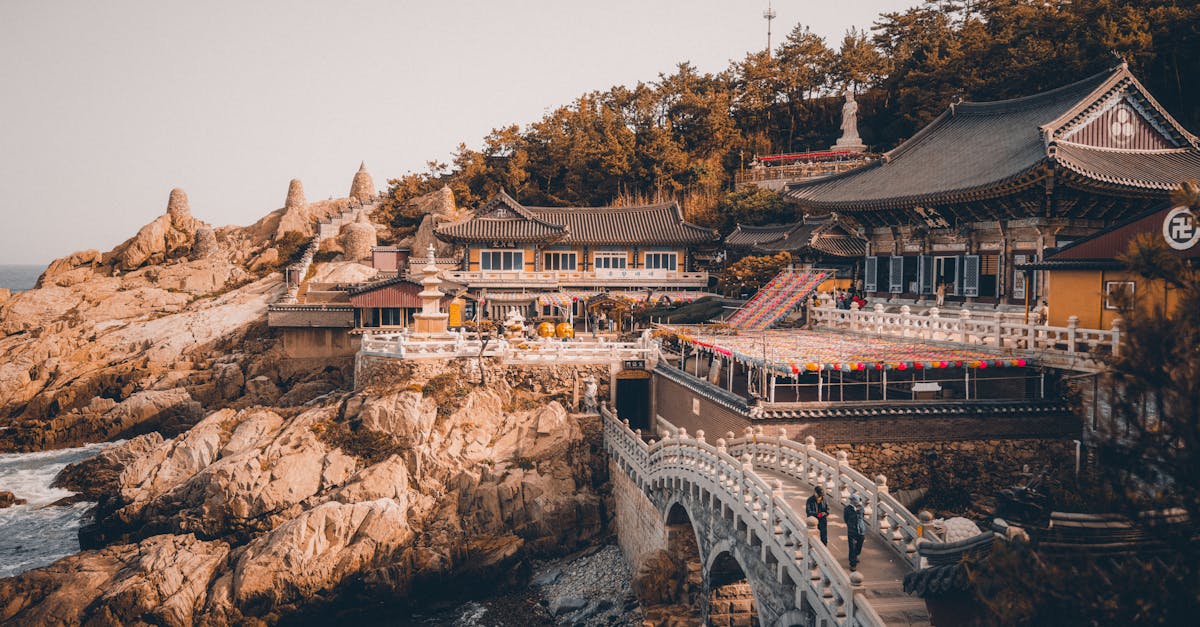|
IN SHORT
|
Going to Japan means immersing yourself in a world where tradition and modernity intertwine harmoniously. Before packing your bags, it is essential to prepare yourself to experience this adventure to the fullest. Whether for the richness of its culture, the delicacy of its cuisine or the originality of its landscapes, Japan has many surprises in store. But to fully enjoy this fascinating archipelago, it is crucial to know certain local particularities and customs. From the way of greeting, to the rules of politeness, including transport, here is everything you need to know to make your trip an unforgettable experience.
Prepare your escape to the Land of the Rising Sun
Japan, land of millennia-old traditions and futuristic innovations, fascinates with its unique atmosphere and breathtaking landscapes. Before embarking on this adventure, it is essential to take into account certain practical and cultural aspects that will make your stay both pleasant and enriching. Whether you want to explore Tokyo, stroll the streets of Kyoto, or admire the cherry blossoms, here’s a guide to prepare you for this fascinating destination.
Entry Documents and Conditions
Visa and Passport
Before packing your bags, check the entry requirements in Japan. Depending on your nationality, you may need a visa. For short stays, many countries, including France, benefit from a visa exemption for stays of up to 90 days. Also make sure that your passport is valid for at least six months after your arrival.
Travel insurance
It is strongly recommended to subscribe to a travel insurance Before leaving. This will protect you in the event of cancellation, lost baggage, or unexpected medical expenses. Take the time to compare the offers to choose the one that best suits your needs.
Budget and Payment Methods
Currency and Costs
The currency used in Japan is yen (JPY). It is wise to have some change on you for small purchases, even though cards are becoming more and more accepted. Larger cities offer vending machines and understanding prices is essential as Japan can be tricky for tourists with a Cost of life quite high.
Best Credit Card for Travel
To avoid excessive banking fees, consider subscribing to a no-fee bank card for foreign transactions. These cards can save you a lot, especially when shopping in Japan.
Communication and Technology
Wi-Fi and Essential Apps
To stay connected, get a portable wifi router upon arrival or make sure your mobile is unlocked to use a local SIM card. Additionally, download some useful apps to get around, like Google Maps or HyperDia, will make your experience easier.
Language and Communication
Most Japanese people are not fluent in English, so it can be helpful to learn some basic phrases in Japanese. Many translation apps can also help you decipher signs and menus in an instant.
Practical Procedures on Site
Public Transport
THE public transport network in Japan is among the most effective in the world. Consider purchasing a Japan Rail Pass if you plan to travel a lot by train. This will allow you to save on your journeys while enjoying the spectacular Shinkansen, the high-speed train.
Etiquette and Behavior
Japan is a country where customs and etiquette are of great importance. It is essential to respect the rules inherent in each situation, whether inside the metro or in a restaurant. For example, it is frowned upon to speak loudly on public transport. Familiarize yourself with cultural codes to avoid missteps.
| Appearance | Essential information |
| Language | Japanese is the official language; learning basic sentences is an asset. |
| Cash | The yen (JPY) is the currency; it is advisable to have cash. |
| Culture | Respect and politeness are paramount; avoid sudden movements. |
| Transportation | The transport network is very developed; the JR Pass can be advantageous. |
| Health insurance | Travel insurance is recommended; medical costs can be high. |
| Label | Removing shoes before entering a home is expected. |
| Food | Try the local cuisine, but be aware of allergies and vegetarianism. |
- Language : Learning a few basic Japanese phrases can be very helpful.
- Cash : The yen is the official currency, it is advisable to have cash.
- Transportation: The JR Pass can be economical for traveling by train.
- Culture : Respecting local customs, such as greetings, is essential.
- Wireless : Carry a portable router or SIM card to stay connected.
- Tips: No tipping in Japan, it can be seen as an insult.
- Food : Taste the local cuisine, but be aware of allergies.
- Seasons: Check the weather, the seasons can influence your stay.
- Label : Take off your shoes when entering a house or temple.
- EMERGENCIES : Write down emergency numbers and the location of the nearest hospital.
Culinary Experiences Not to Be Missed
Sushi and Ramen tasting
Japanese cuisine is a true experience in itself. Don’t leave without tasting the sushi in an authentic restaurant or ramen in a small shop. Let yourself be tempted by flavors that you won’t find elsewhere, while respecting the country’s culinary traditions.
Catering establishments
The Japanese have a very developed restaurant culture. Explore the izakayas, sake bars where you can enjoy a variety of dishes in a friendly atmosphere. Don’t be afraid to enter establishments that seem small or hidden, often they hold delicious surprises.
Unmissable Visits and Activities
Temples and Sanctuaries
Japan is full of temples and of sanctuaries with striking beauty. Take the time to visit emblematic places like the Kinkaku-ji temple in Kyoto or the Meiji-jingu shrine in Tokyo. These tours are not only spiritually enriching, but they will also immerse you in the history of the country.
Nature and landscapes
Don’t miss out on exploring Japan’s natural beauty, whether it’s the cherry blossoms in spring or the snowy landscapes of Hokkaido in winter. Sites like Hakone National Park or Mount Fuji are must-sees for anyone who loves nature.
Accommodation and Accommodation
Types of Accommodation
Of Ryokan traditional to modern hotels, the choice of accommodation is vast. For an authentic experience, consider staying in a ryokan, a type of Japanese guesthouse known for its hospitality and traditional meals.
Reserve in advance
Especially during busy periods, it is essential to book your accommodation in advance. Prices can fluctuate wildly, and some popular locations fill up quickly.
Visit Lesser Known Regions
Exploring Alternative Cities
Although Tokyo and Kyoto are must-sees, let yourself be seduced by less crowded cities like Nara Or Kanazawa. These cities will give you a different perspective on Japanese culture, often away from the tourist crowds.
Festival and Local Events
Participate in a local festival can make your experience unforgettable. Whether it’s a Matsuri festival, or a cultural event, these celebrations are the perfect opportunity to experience Japanese life in all its splendor.
Seasonal Events and Temperatures
Travel According to the Seasons
The Japanese climate varies enormously from one region to another. Spring is famous for its cherry blossoms, summer for its festivals, and autumn for its magnificent foliage. Find out about the best times to travel and plan your stay accordingly.
Adapted clothing
Plan for appropriate clothing depending on the season. Summers can be hot and humid, while winters are cold. Wear comfortable clothes for your explorations, especially if you plan to walk a lot.
Additional Resources and Information
Useful Websites
To complete your preparation, consult sites for more detailed information about your trip. For example, the page of Japan Travel offers lots of practical advice.
Social Media and Travel Blogs
Follow travel blogs or social media accounts dedicated to Japan can also provide you with tips and recommendations from avid travelers. These resources are ideal for discovering little-known places and authentic experiences.
Prepare your return
Souvenirs and Gifts
When it’s time to go home, remember to bring back memories for your loved ones. Local products such as green tea, wagashi (Japanese sweets) or handicrafts are very good ideas. Also take the time to fully enjoy this experience before your departure.
Managing Emotional Memories
Japan leaves an indelible mark on the hearts of those who visit it. Take a moment to reflect on your trip, the people you met and the moments shared. These memories are precious and go far beyond postcards.
By following these tips, your trip to Japan promises to be an unforgettable adventure, rich in discoveries and emotions. Whether you are attracted by culture, gastronomy or natural landscapes, Japan will seduce you and offer you lasting memories.




